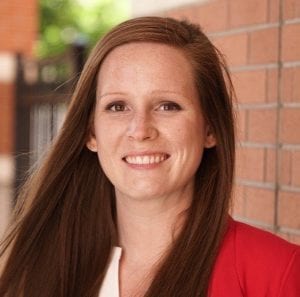Q&A with Sarah Lynam, MD, on New Wellness Curriculum for Fellows
A complete, two-year Wellness Curriculum, covering everything from coaching and mentorship to financial wellness and resiliency, is now available on SGO ConnectEd. The Wellness Curriculum is based on established wellness concepts with an emphasis on specialty-specific stressors such as end of life discussions. Designed to be utilized during didactic sessions, modules include guided discussion, multimedia presentations, and journaling, as well as take-home concepts and exercises to combat burnout.
This 10-module series builds on an early pilot program designed for fellows, developed with a generous grant from the American Board of Obstetrics and Gynecology (ABOG). Due to the exceedingly positive results from the pilot and the continued need for an interactive dialogue on the subject, the SGO Wellness Committee expanded on the curriculum to cover additional topics of interest to fellows.

Sarah Lynam, MD
In the below Q&A, Sarah Lynam, MD, contributes her perspective as a fellow and the importance of partaking in these modules.
Q: How will fellows benefit from the modules?
Dr. Lynam: The modules developed by the SGO Wellness Committee are the result of a coordinated effort among practicing and training Gynecologic Oncologists to combat the deleterious effects of burnout head on. Several high-yield topics have been identified and distilled into interactive sessions with practical how-to’s from field leaders that can be adapted at the program level to reflect available institutional resources and initiatives for fellowship trainees.
Q: In your own words, why is Wellness important for fellows?
Dr. Lynam: Wellness and comprehensive approaches to reduce the effects of burnout among clinicians directly impact quality of patient care, reduce frequency of medical errors, and maximize physician satisfaction in their careers.
Only recently, with the increased investment of ACGME-driven programs for medical trainees, have we developed a full appreciation for the long-term effects of developing healthy habits among medical trainees to reduce provider turnover, foster healthy work-life balance and overall career satisfaction and longevity. Unfortunately, recent data suggest increasing trends of moral injury/burnout and lack of fulfillment in clinical responsibilities even prior to the COVID-19 pandemic and represent an unmet need among gynecologic oncology trainees.
Systematic and/or program-driven initiatives to foster resilience and optimize stress management for the next generation of gynecologic oncologists serve as a crucial, if not necessary, opportunity to provide the best possible care to individuals affected by gynecologic cancer.
Q: How do you see these modules being most effective for fellows?
Dr. Lynam: These modules were intentionally developed as a collaborative effort among fellows, early and mid- to late-career Gynecologic Oncologists to provide a turnkey guide that will inspire dialogue and act as a foundation for active engagement between fellows and their mentors.
These modules will be most effective at the program level, opening the door to meaningful discussion about healthy foundations for a satisfying career in Gynecologic Oncology. With dedicated time for fellows to ask mentors and program educators about their individual approaches to wellness, trainees will have the opportunity to learn different approaches not only from module content itself but from their own educators to define, adapt and promote wellness within their institution.
Q: How have the modules influenced you personally?
Dr. Lynam: The decision among SGO leadership to implement, oversee and promote an entire curriculum dedicated to fellow wellness speaks volumes to the level of investment for subspecialty trainees yet to be recognized by several other medical specialties.
I have learned to broaden my personal definitions of and approaches to wellness, apply mindfulness practices in daily workflows, and preserve work-life balance through the mistakes and successes of my own mentors. These skills have helped me navigate a transition from trainee to junior faculty while remaining conscientious of the needs of my own fellows and maintaining an open dialogue on wellness both in and out of the hospital environment.
Sarah Lynam, MD, is an OB/GYN Gynecologic Oncologist at University Hospitals Cleveland Medical Center in Cleveland, OH